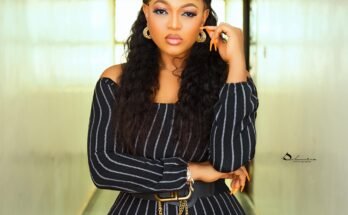Who is Rose Odika
Rose Odika is Delta State Nollywood actress who started acting in 1988. She was born in Ibadan to a delta father and Edo mother. Her first marriage which she had a son crashed some years back.
Sure Name: Odika
Nick Name: Rose Odika
Networth: N/A
Date Of Birth: N/A
Place Of Birth: IBADAN
State of origin: DELTA STATE
Nationality: NIGERIA
Occupation: ACTRESS AND SINGER, businesswoman,
Marital Status: divorced
Education:
If You Love Stories and Facts, Join this Whatsapp Channel
Social Media:
Rose Odika Biography
This Veteran actress, Rose Odika, a Delta State Nollywood actress who started acting in 1988. Rose was born in Ibadan to her delta father and Edo mother.
Rose Odika career
Rose has acted over 100 movies since then.
Aside from acting, Rose is also a gospel artiste. She has released an album titled “Ara Jesu”.
Rose uses her songs as a medium to preach the gospel to her listeners.
READ: Rakie Ayola Biography
in2014 Report according to Naijagists stated that “Rose Odika officially change her name to Adesewa and she has also changed her dress depict the Yoruba culture.”
The announcement was said to have been at Ewa as event 2014. in Ibadan. the event hosted by veteran actress rose Odika was designed to exhibit Yoruba culture.
Scandal
The Delta State-born actress is planning to give marriage another shot after her first marriage to the father of her only child, Mr. Osanaiye crumbled 10 years back.
Read rose Odika interview below:
Of: Why did you go into acting?
Odika: I have fallen in love with acting since my secondary school days when we used to have drama groups, friends club, and events where we perform stage plays. So, one day, my vice principal then, Dr (Mrs) Ero invited me to her office and she told me that she saw a talent in me and that I can become a good actress in future if I can work towards it, but my father from onset never wanted it. Somehow, I started gradually and from that my secondary school days, I have made up my mind to be an actress and everybody used to tell me that you are good in what you are doing. Since then, I fell in love and passion has been there from a young age.
Of: What has been your experience in the profession?
Odika: My experience is tremendous. Firstly, it has been able to give me an image because I see myself as an image-maker, and this has claimed my ways of life. I see myself as a role model. So, it has propelled me to keep my integrity. Secondly, I’m enjoying the glamours that come with being a celebrity. Sometimes, when you go to the bank, you will be queuing and people will just walk up to you and say madam just step forward. I do enjoy those types of favor.
Of: What informed your decision to be a Yoruba actress, despite your Igbo background?
Odika: Environment has a lot to do with children. I grew up in Ibadan all my life and we didn’t have any actor shooting English film in the vicinity at the time. No production of English film or play that comes from that end. So, I’m used to the environment of acting with Yoruba actors of the industry. I came into acting in 1989 and I came into limelight in 1993 at the same time that I was also schooling in the University. So, I only had little time during the holidays to act, and whenever I’m back to Ibadan during holidays, the only thing I do is going to the actors within the vicinity to act. After about 4 to 5 years, I then asked myself, “Do I still need the stress of going to line up for English films? This is because I have tried like one or two times to join, and they told me to go and line up and start from the beginning. So, I decide to stay in Yoruba, although I also do English film and I’m good with that. I can say that my environment has a great effect on my decision.
Of: As a promoter of Yoruba culture and values, how much influence has it had on you?
Odika: When people asked me that you are an Igbo woman, why are you promoting the culture of Yoruba, the responses had been that it is for two reasons. Firstly, I am going back to the society that has made me who I am. If I’ve spent virtually all my life, talking about more than 40 years in Yoruba land, if you want to show appreciation, you do so by giving back what you have and that is what I am doing. Secondly, I have been brought up in Yoruba way and so I am enjoying the position I am today within the Yoruba race. These are the reasons I have chosen to promote Yoruba culture and her values.
Of: Did you marry a Yoruba man?
Odika: Yes, I married a man from Kogi State, Kaba, and Yoruba speaking Okun land.
Osdf: What are the differences and similarities between your culture as Igbo and Yoruba Culture?
Odika: There are a lot of similarities and differences. Our languages are almost the same because I come from a particular little setting that speaks like Yoruba. They are called UGBODUMI from the name of a town UGBODU. It’s like UGBO O DU MI. ‘Owo’ people in Ondo State migrated from there to settle in UGBODU. So, my dialect is almost the same thing as Yoruba. When you want to say “WA” meaning ‘come’ in my language is almost ‘WA’ in the Yoruba language. So, there are some similarities but when we talk about differences, some cultures are very different. The way we get married in our place is different from what is applicable here. Let’s assume as a woman, a Yoruba man want to marry me, the family of that man will tell my parents that they want to marry their daughter and my family will then request for N150,000 if that lady had gone to secondary school. But if she has gone to university, they will demand N1million and you can now from that negotiate on what they can afford. So, the Igbo culture allows this pricing which is not there in Yoruba land. Yoruba man will tell you, we don’t sell our child.
There are so many other differences like in the cases of burial rites and some others.
Osdf: How can we use theatre for restructuring in Nigeria?
Odika: Firstly, I don’t really subscribe to restructuring, but we can use theatre to fight the decadence within society. I see theatre as an agent of change. Most times when you go out, people will tell you if not for all these actors and actress, I would have been dead, saying the recession in the country is giving them hardship, but we do use your films to relax. It shows that we are impacting in their way of life. We can use the Yoruba film to even sell the policy of the government and educate the society. People will listen to us when an actor or actress is speaking, they will like to listen more to me than an ordinary person. The interest will be there, as they will like a celebrity talking to them. So, I see theatre as an agent of change which the government can really use to restructure the mentality of our society.
Osdf: What are your challenges in the profession?
Odika: Well, the first challenge I had was what I told you that I was just on my own before I was invited to act in a particular film, Ododo Eye to be precise. I was not part of that association in the theatre industry then, and when I was invited to take part in the lead role in Ododo Eye, members of the association were insisting that I could not because I was not part of the association. When the producer of that film, stood on his ground and insisted that I was the person she wanted, they had to succumb. I first had the issue of the association blocking me from acting in any film produced by their members. I had to quickly go back after that production to be a member.
Secondly, when you are coming to an association where they already have an array of staff and I am just coming in, a young girl of 19, with people ahead of me, it was challenging but by God’s grace, I was able to come out of it.
Of: It seems that the influx of Western values in our home videos has downplayed African culture. What is your take?
Odika: My answer is that there is nothing we can do about it. I’m a businesswoman, I want to sell a film of hundreds of millions of copies and nobody has given me money to shoot the film. There are some bodies like NGO’s and if they want us to promote the culture of Yoruba throughout the film, they should sponsor it. UNESCO will be asking us, why are you not telling us about cancer? Did they give me money to promote cancer? I’m a businesswoman, give me money. They should have it in mind that these people doing the film are business women and men, they want to sell and make money. Yes, we want to correct some things in our society, but not at the detriment of our own pocket. The government should put out the money and send us, “Go and talk about our culture”. Why is Bollywood selling here, are we Indian? Why are we watching them? Let’s start there. Many people will rather watch Indian films than watch Yoruba films. So, let us correct ourselves and our mindsets, if the market is increasing, we will go for it. If I do a cultural film now and I sell more, nobody will teach me to do another cultural film again. The truth is that the promotion of our culture in home videos can stop the influx of Western Values in our culture, but who will sponsor it is the problem.
Osdf: We understand that you are planning a programme, called “Ewa Asa” what is it about?
Odika: Well, I have a project called “Ewa Asa” meaning, the beauty of culture. This is the fifth edition and we are bringing it to the palace of the Ooni of Ife. It is in two to three dimensions. The first is to relate with the younger ones from our secondary schools about the promotion of the Yoruba culture. How many of us can speak Yoruba fluently for fifteen minutes without diluting it with English? So, we are making it a competition for all the secondary schools.
We want to also showcase all the beautiful dancings we have in Yorubaland. When do we talk about “BUTTON”, which is the dance of the virgins, how many of us have seen it? These are part of what we want to celebrate. We also want to celebrate our local foods, like EGBO, EKURU, ABARI, and many more. We want to celebrate out clothing styles, hairstyles and many more as well.



